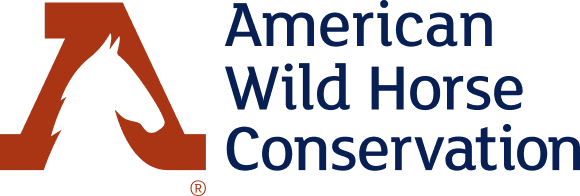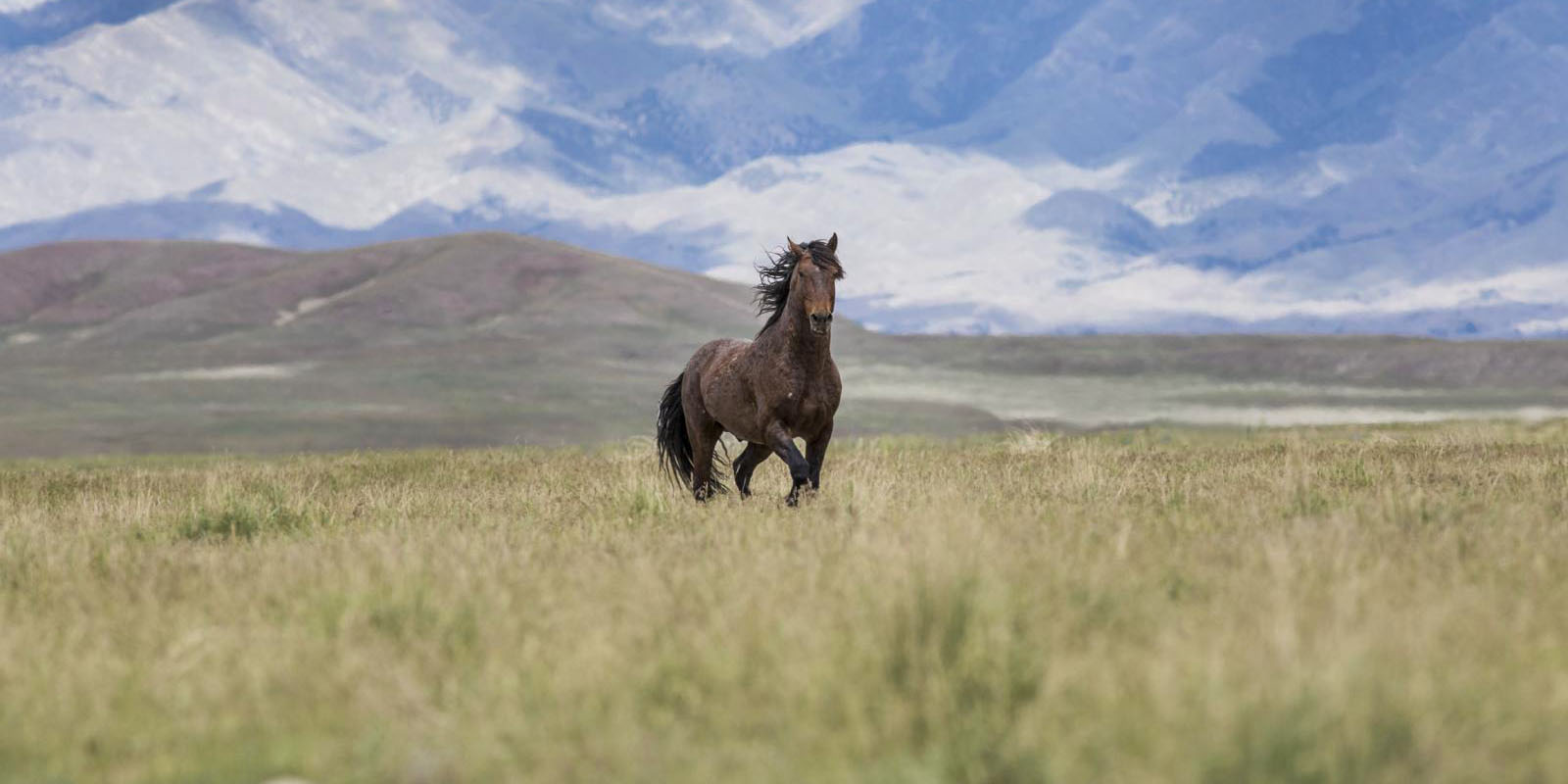In 1998, California made history by passing Proposition 6, the first state legislation in the country to ban the export and slaughter of horses* for human consumption.
But apparently, more than 20 years later, the University of California still hasn’t gotten the message that Californians have said “No” to this brutal practice and that it’s illegal in the Golden State - home to approximately 700,000 domestic horses.
In this case, though, the horses being targeted are 3,000 or so wild horses living on the Devil’s Garden Wild Horse Territory, their federally-protected habitat on the Modoc Nation Forest near Alturas, CA.
Last November, 932 of them were rounded up and removed to make room for private ranchers who hold permits to graze about 6,000 cattle and sheep on the 300,000-acre Territory that is managed by the U.S. Forest Service (USFS).
Around the same time, the USFS announced its plans to sell horses 10 years and older and those who had not been adopted after three adoption events through an unprecedented “Sale without Limitations” policy that would allow individuals and groups to buy up to 36 of these horses at one time for $1 each, placing them in jeopardy of entering the slaughter pipeline.
The University of California, Its Cooperative Extension, and Laura Snell
The University of California’s division of Agriculture and Natural Resources boasts that its Cooperative Extension offices serve all 58 counties in California.
According to its mission statement, since 1914, the University of California Cooperative Extension (UCCE) “has been the bridge between local issues and innovative answers through the power of UC research” and that its advisors, specialists, faculty, and staff are committed to principles that include “being a leader to bring science-based solutions,” “providing information that is trustworthy and not biased,” “providing research that is practical to use,” and “inviting the participation of all concerned stakeholders.”
But apparently the UCCE’s mission and principles don’t to apply to Laura Snell, the County Director and Livestock and Natural Resources Advisor in Modoc County, who has used her position to not only wage war on the Devil’s Garden wild horses but also openly advocate for their slaughter. Even more disturbing, it appears that the UCCE has no intention of reining in Ms. Snell’s questionable activities as both a University of California and a state of California employee.
Although the Devil’s Garden horses comprise the largest and most historic wild horse herd in all of California, Ms. Snell, along with the Modoc County Farm Bureau and local ranchers, views them as pests and competition for the thousands of private cattle and sheep who graze for a pittance on public lands – thanks to the generosity of American taxpayers.
In 2015, Ms. Snell, under the auspices of the UCCE, began a “research project” that was supposed to be examining the impacts of wild horses, livestock, and wildlife on riparian areas, the space between land and river or streams.
The problem is, however, that if Ms. Snell intended to objectively assess these different impacts, she never did, and as a result, continued down a biased path from the very beginning. As she stated in a 2016 article in Green Blog, a publication by the University of California’s Division of Agriculture and Natural Resources,
I had Modoc County ranchers coming up to me on my second day of work asking me how to solve the wild horse issue…..We realized we needed to provide visuals to show people the horses and what the landscape looks like due to unmanaged grazing by the wild horses.
Also, even though her research was not completed until 2018, Ms. Snell began presenting the preliminary, unpublished, non-peer reviewed results and photographs at livestock and wildlife conferences as well as sharing them with the Bureau of Land Management and federal and state legislators who are opponents of wild horses and supporters of horse slaughter, such as U.S. Representative Doug LaMalfa, to promote the gather, removal, and slaughter of wild horses.
Dennis Willis, who retired from the BLM after working 35 years on rangeland management and recreation programs and is the author of "A Primer on Rangeland Management: Welcome to Rangeland Management 101," also finds Ms. Snell’s research questionable:
Her pictures certainly show damage to the riparian around the waterhole, but it would be easy to gather thousands of photos from many hundreds of places that show worse damage from cattle alone where there are no horses present. In my humble opinion, her study is very limited in scope and usability. Does anybody really buy the proposition conditions would be better if horses were removed and replaced by cattle? Certainly, on the basis of this study, one cannot say horse impact > cattle impact because cattle impacts were not studied.
Equally disturbing, in her capacity as an employee of the state of California where horse slaughter is banned, Ms. Snell has used her UCCE research and the resulting media attention to frequently and publicly promoted her personal agenda of wild horse slaughter as illustrated in this interview:
I really think sale of horses should be allowed. I think if there are groups that want to buy those horses and keep them, that should be fine. If there’s a group that would like to eat those horses, I think that’s fine. – Laura Snell interviewed for News Deeply, September 7, 2017
Funding funnels slaughter
Then there’s the UCCE’s funding – along with that of the USFS and the United State Department of Agriculture SDA – of a website ironically called Devil’s Garden Horses: Uncovering the story behind the wild horses that posts ill-informed blogs about the horses and their management written by Ms. Snell and/or interns under her supervision.
In one particularly egregious blog, “Hundreds of Wild Horses in California Set for Roundup, In Hopes of Saving Wildlife,” the writer not only flaunts her ignorance of the consequences of selling horses by the truckload for $1 but openly acknowledges that the Devil’s Garden horses could be sold to kill buyers:
After thirty days, sale without limitation will begin and buyers can purchase up to 36 horses for as low as a $1 apiece. This allows trainers who are willing to train large quantities of horse a business opportunity… Horses can also be sold to sanctuaries, become ranch stock horses, packing horses, or to buyers that may send them to slaughter.
It’s irresponsible of the UCCE to be supporting a website that so casually accepts, and tacitly promotes, the slaughter of California’s wild horses in the state of California that banned the practice two decades ago.
The University of California and Accountability
The USFS’s announcement that it planned to sell the Devil’s Garden horses “without limitation” resulted in a massive public outcry – in California and across the county.
In November 2018, California Attorney General Anthony Becerra sent a letter to the USFS, warning that selling or exporting horses for slaughter for human consumption is a felony in the state of California since passage of Proposition 6 in 1998. A month later, Assemblymember Todd Gloria introduced new state legislation to protect California’s wild horses from roundup and slaughter by the federal government after he along with 23 members of the California State Legislature joined Sen. Dianne Feinstein to oppose the USFS’s policy.
The question, then, is whether the University of California has played a role in promoting the slaughter of these federally-protected horses in California by not restraining one of its employees who has used her state-funded position, her University affiliation, and her “research” to advocate for removal of the Devil’s Garden horses and horse slaughter?
The answer is “Yes.”
As stated in its mission, the UCCES views itself as a “bridge between local issues and innovative answers through the power of UC research.”
Clearly, in her position as a UCCE employee, Ms. Snell has not provided that “bridge.” Instead of providing “innovative answers through the power of UC research,” she has used her subjective, agenda driven “study” and every available media outlet to advance her personal and unprofessional vendetta against the Devil’s Garden wild horses that includes promoting their removal and slaughter. Instead of “inviting the participation of all concerned stakeholders,” she has become a lightning rod of controversy around wild horse management and horse slaughter.
And, as mentioned earlier, the University of California’s own Division of Agriculture and Natural Resources Green Blog published one of the earliest articles about the real purpose of Ms. Snell’s study – “to provide visuals to show people the horses and what the landscape looks like due to unmanaged grazing by the wild horses.”
This statement alone, as well as the many others that followed, should have been the first red flag to the UCCE – and by extension, the University of California -- that Ms. Snell was not adhering to its principles of “being a leader to bring science-based solutions” or “providing information that is trustworthy and not biased.”
Further, given that Ms. Snell’s research and views on wild horse management were featured in so many articles, it’s hard to believe that the leadership of the University of California’s division of Agriculture and Natural Resources isn’t aware of her position on horse slaughter – and that it was in direct conflict with the state’s ban on horse slaughter.
The University of California should be held accountable and made to explain how the use of state resources for the promotion of a practice banned by law and supported by most Californians is consistent with its mission and its reputation of being one of the world’s most prominent public research university.
* ”horses” refers to all equines, including horses as well as ponies, donkeys, and mules.


